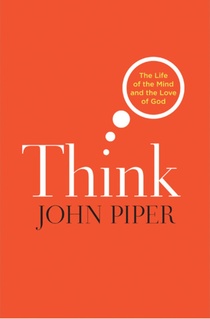In the last post, I highlighted the tendency to reduce “application” merely to “actions.” In fact, biblical application involves our head, heart, and hands.

Today, I suggest an easy to use method whereby we can apply any Scripture passage, even if it doesn’t tell us some action to do (or not to do). In this post, I’ll give a summary explanation of the method.
Later, I’ll further explain why these points are not only less arbitrary than other approaches; in addition, we have Scriptural warrant for using this sequence of questions. There is a distinct logic here. There are advantages to asking these questions. That discussion however will come in part 3 of the series.
We can ask four questions.
The sequence of questions matters. Each one can be remembered with a key word beginning with the letter H. As with the method the interpretation I introduced previously, so here there are some elements may be counter intuitive yet important nevertheless. For example, consider the first question.
1. How does the text HONOR God?
This question is not about how we should honor God; rather, we’re asking how the passage we are reading reveals thus honors God. How do the verses themselves attempt to show how special God is?
As 1 Cor. 10:31 reminds us, all we do should be done for the glory of God. God is the main character in every Biblical passage. Therefore, our lead question should not be, “How should I apply this verse?” Instead, we first ask, “How does this passage honor God?” By starting here, our obedience becomes a response to God––an expression of who God is and what He has done. There is no genuine obedience to God that is not rooted in and reflective of His glory.
If we only had one question to ask of these four, then this first one is most important. Rightly perceiving God’s worth can naturally produce godly responses in His children in ways we may not even be aware of. Honestly, we have to remind ourselves, “What does it matter if we conform to some standard but without love for God in our hearts?”
2. How should it affect our HEAD?
The next three questions have a positive and negative side.
 This second question concerns our thoughts. Positively, what should we know and believe? Negatively, what should I not think or believe? Truth matters. So many of the world’s ills come from not knowing and believing the truth. One certainly can’t love what can’t be apprehended to some measure in the mind. I didn’t say we have to have complete comprehension; however, we do need some degree of understanding. Imagine if I told you, “All people must love D&#kAe in order to s^73mcQ.” You would have no idea what I mean, to ay nothing of loving and doing something.
This second question concerns our thoughts. Positively, what should we know and believe? Negatively, what should I not think or believe? Truth matters. So many of the world’s ills come from not knowing and believing the truth. One certainly can’t love what can’t be apprehended to some measure in the mind. I didn’t say we have to have complete comprehension; however, we do need some degree of understanding. Imagine if I told you, “All people must love D&#kAe in order to s^73mcQ.” You would have no idea what I mean, to ay nothing of loving and doing something.
Of course, our “head” is just the beginning. I find a tendency in people to throw the baby out with the bath water. Because head knowledge is not sufficient to produce a godly life, people then start to demur or minimize head knowledge. Knowledge is for various kinds of obedient response. Obedience to truth is far more God-glorifying that compliance borne out of ignorance or even wrong beliefs. No doubt this way of thinking about knowledge has led to much anti-intellectualism (and its cousin “anti-theologicalism”). Knowledge is necessary, even if it is not sufficient.
A helpful book on the subject is John Piper’s Think.
3. How should it affect our HEART?
This third question relates to our desires, will, and affections. Positively, what should we feel and want? Negatively, what sin does this expose in my heart?
Many are unaware that the Bible commands us to have and not have certain emotions. I recently heard one Christian woman say that we have the right to have any emotion we want because they are ours. First of all, this is faulty logic––I don’t have the right to possess drugs simply because they are mine. Second, this sentiment is in direct contradiction with Scripture. For examples, consider the following verses:
Phil 4:4, “Rejoice in the Lord always; again I will say, rejoice.”
Eph 4:26, 31, “Be angry and do not sin; do not let the sun go down on your anger … Let all bitterness and wrath and anger and clamor and slander be put away from you, along with all malice.”
Rom 12:15, “Rejoice with those who rejoice, weep with those who weep.”
Luke 6:35, “But love your enemies, and do good, and lend, expecting nothing in return, and your reward will be great, and you will be sons of the Most High, for he is kind to the ungrateful and the evil.”
Col 3:15, “And let the peace of Christ rule in your hearts, to which indeed you were called in one body. And be thankful.”
Each of these verses commands some sort of emotional and volitional response. God commands our emotions (like joy) just as he does our actions.
Do we take this seriously in our discipleship and personal application?
4. How should it affect our HANDS?
This last question is easy enough to understand. Positively, what actions should I do? Negatively, what should I not do?
However, one reason it’s so hard to actually obey with our actions is because we neglect the previous three questions. We don’t get a clear view of God’s glory such that our minds are changed and our hearts moved to spur us to act in a Christ-like manner.
So Now What?
Try using these questions in you personal devotions and in your Bible study groups.
Slow yourself down and take each question in order.
Remember the head, heart, and hands questions have both positive and negative aspects. The application implied by some texts is not always obvious.
Let me know whether you get a bit more out of your Scripture reading.
In a coming post, I’ll explain the biblical and theological logic behind these questions.













